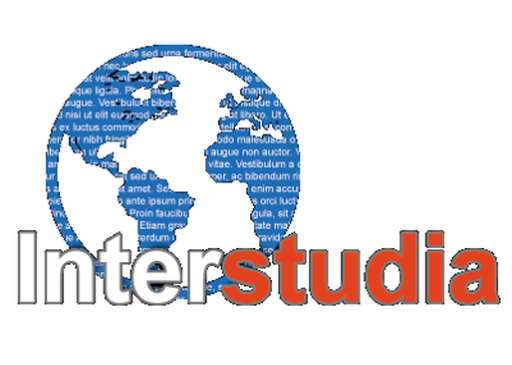
Archéologie discursive du pouvoir / The Archaeology of Power through Discourse (Interstudia n°33)
Interstudia n°33
Appel à Contributions / Call for Papers
Archéologie discursive du pouvoir / The Archaeology of Power through Discourse
Coordination: Simina Mastacan, Cătălina Bălinișteanu-Furdu
Les changements importants qui ont lieu au niveau de formes de communication et d’expression contemporaines accompagnent constamment les modifications sur la scène socio-politique. Plus que jamais, face aux confrontations avec des événements dramatiques qui ont bouleversé le monde entier, on se trouve l’impératif de réfléchir sur les la parole comme forme d’influence, d’action et de pouvoir. Ainsi, nous proposons que ce numéro de la revue Interstudia soit dédié à une réflexion commune concernant les formes et les modalités à travers lesquelles le discours se fait le miroir d’une certaine forme de pouvoir.
Obtenir une légitimité, une autorité discursive, c’est être investi, symboliquement, d’une certaine forme de pouvoir. Quel que soit le champ disciplinaire visé (discours littéraire, politique, juridique, religieux, publicitaire), l’empreinte du pouvoir est omniprésente dans la propagation des discours institutionnels, idéologiques ou dans la constitution et la négociation des relations du discours. Les marqueurs discursifs du pouvoir sont à chercher dans les actes de langage proférés, à travers l’implicite du discours, dans les stratégies argumentatives mises en oeuvre, dans les interactions verbales, dans les images et les codes non-verbaux. C’est un discours polyphonique, multimodal, où les voix des acteurs qui y participent s’entremêlent et qui devient d’autant plus efficace si ses ressorts sont invisibles, dissimulés.
Nous invitons les contributeurs à soumettre leurs articles en privilégiant les axes suivants :
- Pouvoir, autorité et efficacité discursive
- Genre et pouvoir: hypostases de la féminité à travers le discours du pouvoir
- Implicite et pouvoir symbolique
- Formes de manifestation du pouvoir par la propagande, la manipulation et la désinformation
- Les paradigmes du pouvoir en situation de crise
***
The changes from the socio-political life constantly bring about major transformations also encountered in contemporary communication and in the current ways of expression. More than ever, the clash with the dramatic events which have affected the whole world lately, imperatively demands us to ponder on words as a way to influence the actions and the power discourse or as a way to influence, to act upon and to control the others. Therefore, the current issue of our review, Interstudia, aims at a united effort to reflect upon the forms and ways through which discourse illustrates different degrees of power.
Being symbolically invested with a specific form of power also suggests being legitimate and gaining a certain discursive authority. No matter what disciplinary field we might choose (literary, political, legal, religious, advertising discourse), power is ubiquitous in the dissemination of institutional and ideological discourse or in the construction and negotiation of discourse relations. Its discursive markers can be found in the well-known speech acts, in verbal interactions, in images and non-verbal codes. It is a polyphonic, multicultural discourse in which the actants’ voices intertwine and are more effective when their initiators and strategies are hidden or dissimulated.
The authors are kindly asked to bring their contribution on the following areas:
- Power, authority, and discursive efficiency.
- Gender and power: instances of femininity through the discourse of power.
- Implicature and symbolical power.
- Power manifestations through electioneering, propagandism, manipulation, and disinformation.
- Power paradigms in crisis situations.
Bibliographie / Bibliography:
· Amossy R., L’argumentation dans le discours, Paris: Armand Colin, 2006.
· Authier Revuz J., Ces mots qui ne vont pas de soi. Boucles réflexives et non-coïncidence du dire, t. I, II, Paris: Larousse1995.
· Bourdieu, Pierre, Langage et pouvoir symbolique, Paris: Seuil, 2001.
· de Beauvoir, Simone, Le deuxième sexe, Paris, Gallimard, 2009.
· Breton Ph., La parole manipulée, Paris: la Découverte, 2000.
· Butler, Judith, Gender Trouble: Feminism and the Subversion of Identity, New York: Routledge, 1990.
· Castelles M., Communication Power, Oxford: Oxford University Press, 2013.
· Paglia, Camille, Sexual Personae: Art and Decadence from Nefertiti to Emily Dickenson, New Haven: Yale University Press, 1990.
· Plantin Ch., Essais sur l’argumentation. Introduction à l’étude linguistique de la parole argumentée, Editions Kimé: Paris, 1990.
· Van Dijk T.A., Discourse and Power, Palgrave: Macmillan, 2008.
Les propositions d’articles, ainsi que les textes définitifs seront envoyés à /Please submit your papers in English to the following e-mail address:
Simina Mastacan (for papers in French) - simina_mastacan@yahoo.com
Cătălina Bălinișteanu-Furdu (for papers in English or German) – balinisteanu.catalina@ub.ro
Fiche d’inscription / Registration form
· Name and surname:
· Academic title:
· Affiliation:
· E-mail address:
· Address:
· Research area(s):
· 3 major scientific publications:
· Title of the submitted paper:
· Thematic area of submission:
Deadlines
· Submission of papers: September 1, 2022
· Notification from the scientific committee: October 1, 2022
· Submission of the final version of the papers : October 16, 2022
· Estimated paper publication: November 30, 2022
Indexation: Erih+, CEEOL; INDEX COPERNICUS; FABULA; KVK; EBSCO, Linguist List, Miar.
Les auteurs doivent respecter les normes rédactionnelles de notre revue: / Authors are asked to comply with Interstudia stylesheet on the following link:
http://interstudia.ub.ro/pages/author
Chaque soumission est évaluée par au moins deux relecteurs appartenant au comité scientifique international de la revue / Each submission will be reviewed by two specialists in the thematic area of the papers who may be members of the scientific committee or other experts appointed by the editorial board.
Les auteurs dont les articles sont acceptés par le comité scientifique vont remplir et envoyer la déclaration d’originalité et cession des droits de reproduction, disponible sur DOO-FR.pdf (ub.ro)
Authors whose papers will be approved by the scientific committee are asked to fill in the Author Statement form regarding the authenticity of the article/paper and their consent for the material to be published. https://interstudia.ub.ro/uploads/forms/DOO-EN.pdf